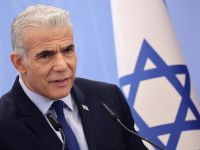Two women were elected out of 83 seats contested in the first direct election to an advisory council in the conservative Gulf sultanate of Oman, the same tally as in the last polls but with double the voter participation.
Businesswoman Lujaina Mohsin Haider Darwish and Rahila al-Riyami, education ministry planning director, both won seats in and around the relatively liberal Omani capital of Muscat in Thursday's polls, the interior ministry announced.
The same number of women won seats in each of the past two elections to the Majlis al-Shura, or consultative council. A rarity in the Gulf Arab monarchies, women were given the vote in Oman in 1994.
"It's a beginning. We are still a very conservative society," Darwish told AFP, adding that she would concentrate on jobs and education for women.
The council, founded in 1991, has no say on defense, internal security or foreign policy nor the power to block proposed legislation, only an advisory role, mainly on the economy, and the right to question ministers.
Darwish, who like Riyami in Bausher constituency just to the north of the capital, played down criticism aired in local newspapers before the polls that the council had no teeth.
"Everything has to take time. These are issues pertaining to people and government. The council has its powers, however limited," insisted the 31-year-old whose family owns the Land Rover and Jaguar franchises in Oman.
A majority of the winners, including the women, were new faces as election rules bar candidates running for a third term. Less than half of the outgoing council was allowed to stand for re-election and Riyami will have to give up her ministry post.
Two would-be candidates for re-election were disqualified after having been accused of bringing the council into disrepute with a strong grilling of ministers, laying down a red line.
A western diplomat said the women's performance was "a good result", especially as they were top in their constituencies, which each had two seats. But there were "no outstanding figures" elected among the men.
"With no campaigning, people vote for people they know or a name they know, someone from their tribe," he said.
In the absence of political rallies, campaign posters or billboards, it was a quiet campaign restricted to the candidates canvassing door-to-door and meeting constituents at home. Foreign journalists observed the incident-free polls.
An expanded electoral college of about 114,000, compared to only 51,000 in the last ballot of 1997, was registered to elect the council for its fourth three-year term.
Twenty-one women candidates were among a field of almost 550 runners, while a council president is appointed by the ruler of the oil and-gas exporting state, Sultan Qaboos, who has been in power 30 years.
Apart from widening the voter base in Oman, where only about 600,000 people are over the voting age of 21, a 30 percent share of participation was this time fixed for women.
And in a traditional society, "even (most) women vote for men and not many men vote for women candidates," an Omani official said.
Tribal and community leaders appointed the electoral college for the ballot, which last time produced a turnout of almost 90 percent. But because of a low initial registration, other voters were allowed to add their names to the list.
The interior ministry reported a high turnout but did not give an overall figure, which was to be announced later Friday together with confirmation of the full results.
Khalifa Abdullah al-Homaidi, a losing candidate in Muscat, said the registration process was "too complicated and time-consuming, and it needs to be made easier".
Diplomats, meanwhile, have pointed to slow but gradual progress toward political liberalization in Oman, amid reforms in the region's monarchies after the 1991 Gulf War - MUSCAT (AFP)
© 2000 Al Bawaba (www.albawaba.com)







